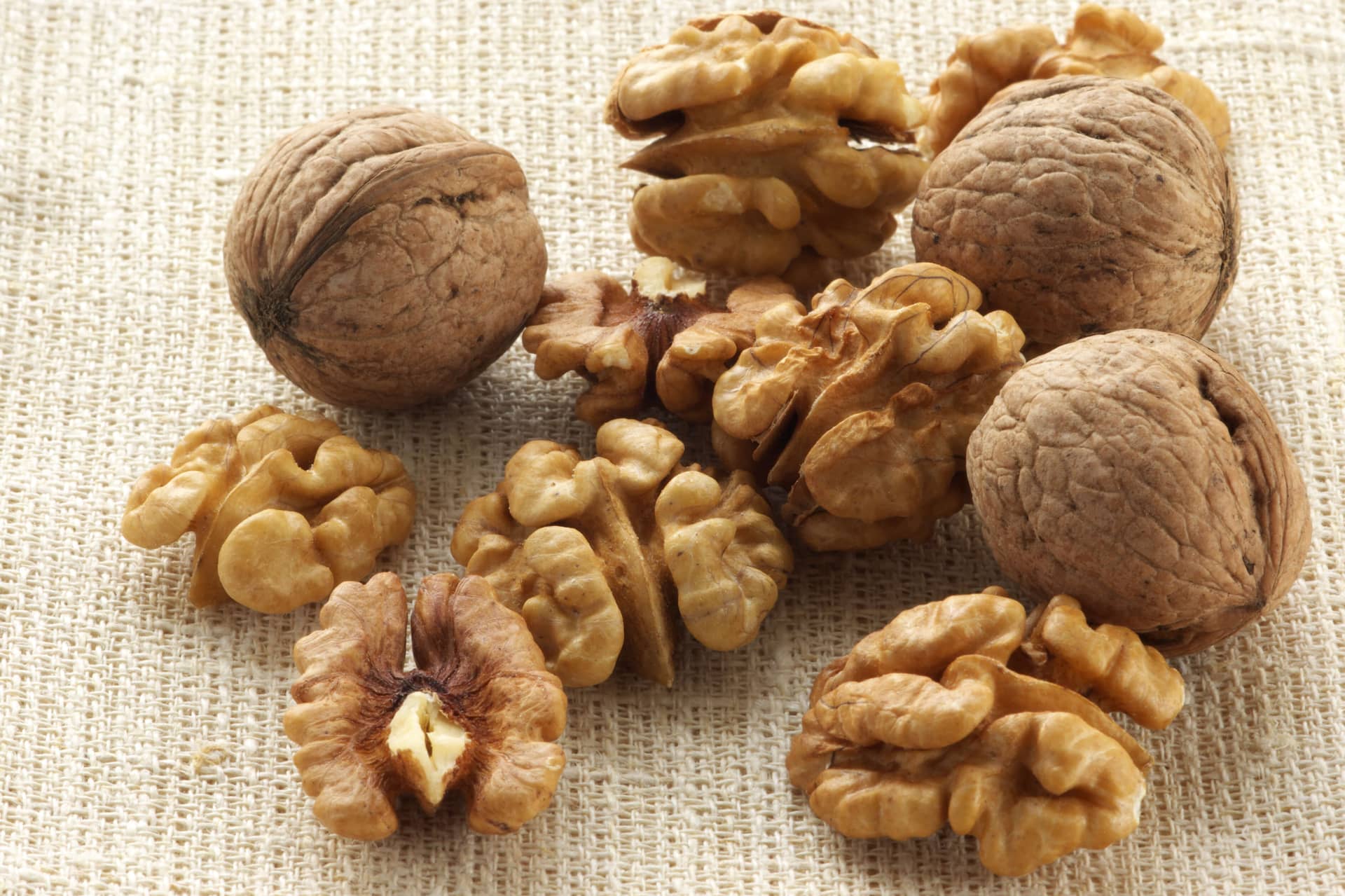
Imagine extending your life, protecting your heart, and sharpening your memory—just by eating a small handful of something crunchy each day. It sounds too simple to be true. But scientists are uncovering powerful health benefits hidden inside a familiar, often-overlooked snack. Among all the contenders in the nut family, one variety rises above the rest as a potent defender against cancer, heart disease, and even cognitive decline. So what makes this brain-shaped nut such a superfood? The answer might surprise you.
Key Takeaways
-
Walnuts are uniquely powerful among nuts, offering protection against heart disease, arthritis, and several forms of cancer, especially colon cancer.
-
Even small amounts (just three ounces per week) of walnuts can significantly reduce cancer mortality and improve cholesterol levels without leading to weight gain.
-
Walnuts support brain health, potentially delaying age-related cognitive decline and improving working memory.
This One Nut May Cut Your Cancer Risk in Half
“A little goes a long way” is a perfect phrase to describe a category of food that’s crammed with nutrients and health benefits.
While a dietary shortfall of this food is believed to put you at major risk for disability or death, all you have to eat is a single ounce a day, or even less, to protect your health and extend your life by a couple of years.
The food group is nuts. And which type of nut is the best? Brazil nuts? Almonds? Keep reading. . .
While all types of nuts make an outstanding contribution to health, walnuts probably top the list for benefits.
Protects Against Heart Disease, Arthritis, and Cancer
Walnuts are one of the best sources of free radical-fighting antioxidants and also contain high amounts of plant-derived polyunsaturated fats. These include the anti-inflammatory omega-3 fatty acids, so important for decreasing the risk of heart disease and dementia, and useful as well for treating and preventing arthritis.
Other important compounds in walnuts include ellagic acid, a phytonutrient important in cancer prevention; arginine, which helps keep blood vessels smooth and flexible; and plant sterols, which aid in lowering cholesterol.
Walnuts are also packed with vitamins and minerals and are a good source of protein.
Studies show they are the nut of choice when it comes to suppressing cancer cell growth. Commenting on a recently published lab study, Daniel W Rosenberg of the University of Connecticut said:
“Our results show for the first time that walnut consumption may reduce colon tumor development. There is accumulating evidence that eating walnuts may offer a variety of benefits related to health issues like cancer.”
Cancer protection was demonstrated in a large study of 7,000 people.
Of all the varieties of nuts eaten by the participants, walnuts were by far the most important in preventing cancer deaths. Eating more than three ounces a week cuts the risk of dying from cancer in half.
The walnut was the only nut inversely associated with cancer mortality. The more walnuts eaten, the lower the number of cancer deaths.
The WAHA Study
Researchers from the Hospital Clinic of Barcelona and California’s Loma Linda University were so impressed with the health benefits of walnuts, they set up a two-year clinical trial called the Walnuts and Healthy Aging (WAHA) study.
It includes 707 people with an average age of 69. Half the participants added a handful of walnuts to their daily diet. The other half served as a comparison group. They ate no additional nuts.
One year into the study, preliminary results show the walnut group had a significant reduction in LDL (bad) cholesterol while seeing no change in body weight. The latter finding is important because many people wrongly believe nuts cause you to put on weight.
Dr. Emilio Ros, who led the study, said, “Acquiring the good fats and other nutrients from walnuts while keeping adiposity [body fat] at bay and reducing blood cholesterol levels are important to the overall nutritional well-being of aging adults. It’s encouraging to see that eating walnuts may benefit this particular population.”
Walnuts Benefit The Brain Too
A growing body of research supports walnut consumption as protective against cognitive decline. One study concluded that a diet rich in walnuts would help protect against Alzheimer’s disease.
Another found that among all nuts, only walnuts were associated with better working memory. This allows us to remember important information we need for short periods, a useful skill, for example, when following a set of directions.
A review of walnuts in brain health concluded that they could slow the aging of the brain and reduce the risk of chronic neurodegenerative disease.
Nuts in general – and walnuts in particular – are packed to the rafters with nutrients. That’s why as little as three ounces per week provides significant health benefits.
So go ahead and enjoy this tasty snack. It’s one of the best dietary choices you can make.
Summary
Walnuts stand out as a nutritional powerhouse among nuts, offering a wide range of health benefits with just a small daily serving. Rich in antioxidants, omega-3 fatty acids, and other potent plant compounds, walnuts have been shown to reduce the risk of heart disease, lower LDL cholesterol, and even suppress cancer cell growth, particularly in the colon. The WAHA study revealed that older adults who added walnuts to their diets enjoyed better cholesterol levels without gaining weight. In addition to their physical health benefits, walnuts may also protect the brain from age-related decline, enhancing memory and reducing the risk of Alzheimer's disease. Just three ounces per week could make a significant difference.
Frequently Asked Questions
How many walnuts should I eat per day to get the health benefits?
Just an ounce (about 7 walnuts) a day, or three ounces spread throughout the week, can offer noticeable benefits.
Do walnuts reduce cancer risk?
Yes, studies show that walnut consumption is linked to a significant reduction in cancer mortality, especially colon cancer.
Will eating walnuts make me gain weight?
No. Clinical trials show that moderate walnut consumption does not lead to weight gain and may even improve fat metabolism.
Can walnuts improve brain function?
Research links walnuts to improved working memory and reduced risk of cognitive decline and Alzheimer’s disease.
Are other nuts as beneficial as walnuts?
While all nuts are healthy, walnuts are uniquely high in omega-3s and antioxidants, making them especially potent for disease prevention.
- Nakanishi, M., Chen, Y., Qendro, V., Miyamoto, S., Weinstock, E., Weinstock, G. M., & Rosenberg, D. W. (2016). Effects of Walnut Consumption on Colon Carcinogenesis and Microbial Community Structure. Cancer prevention research (Philadelphia, Pa.), 9(8), 692–703.
- Muthaiyah, B., Essa, M. M., Lee, M., Chauhan, V., Kaur, K., & Chauhan, A. (2014). Dietary supplementation of walnuts improves memory deficits and learning skills in transgenic mouse model of Alzheimer's disease. Journal of Alzheimer's disease : JAD, 42(4), 1397–1405.
- Poulose, S. M., Miller, M. G., & Shukitt-Hale, B. (2014). Role of walnuts in maintaining brain health with age. The Journal of nutrition, 144(4 Suppl), 561S–566S.

